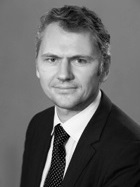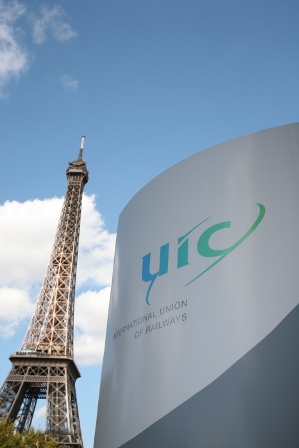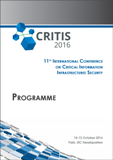Content
Acceptance
The use of the CRITIS 2016’ website implies full acceptance of the following terms and conditions.
Intellectual property
All trademarks and logos displayed on the website www.critis2016.org are the property of the UIC and protected by the intellectual property laws applied in France. They may not be used or copied in any way without prior and express permission from the UIC, which reserves the right to prosecute any act infringing its intellectual property rights.
The CRITIS 2016 provides links to third-party and external websites, for which it disclaims any responsibility. The insertion of these links does not in any way imply the approval of or an existing partnership with any of these sites. In no event shall the CRITIS 2016 be held liable for the referencing of these sites on its website. The insertion, on external sites, of hyper links to the CRITIS 2016’ website is subject to prior and express permission from the CRITIS 2016.
The CRITIS 2016 consequently assumes no liability for the content or the use of:
- Sites linked to from the CRITIS 2016’ website
- Sites containing a link to the CRITIS 2016’ website
Security
It is the responsibility of all Internet users consulting the CRITIS 2016’ website to avoid infecting the site with viruses of any description.
The CRITIS 2016 assumes no liability for any direct or indirect damages arising from access to or use of the site www.critis2016.org or the information contained on it.
Personal information
Personal information obtained via the discussion forum on the CRITIS 2016’ website may not be used for purposes other than to contribute to the proposed discussion topics.
A moderator may change or remove, prior to its being displayed on the discussion forum, any posting that is irrelevant to the topic addressed or that is unlawful.
Users have the right to access, change, correct or remove any of their personal information (as provided for by Article 34 of the French Data Protection Law of 6 January 1978). Users may ask for their comments on the discussion forum to be removed at any time by sending a message to webmaster@uic.org or by writing to UIC – Legal Department, 16 rue Jean Rey, 75015 Paris.
Site access
The International Union of Railways (UIC) reserves the right to suspend, interrupt or change the site access hours without prior notice.
The hardware required to connect to the Internet, as well as any costs associated with consultation of the site, shall be borne exclusively by the Internet user.
Legal compliance
The CRITIS 2016’ website has been created and edited in compliance with the laws applied in France. In accessing this website, Internet users resident outside France shall ensure that they are in compliance with the locally-applicable legislation relating to the use and content of this website.
Liability
The CRITIS 2016 assumes no liability whatsoever for any direct or indirect damages arising from the use, access or inability to access the CRITIS 2016’ website. Neither shall the CRITIS 2016 be held liable for the risks related to the completeness, accuracy, suitability or topicality of the information.
The costs and expenses incurred by the CRITIS 2016 due to any request resulting from the user’s breaching the present terms of use or in relation to the user’s site use shall be assumed exclusively by the user.
Other information
The website’s content management system software is SPIP.
The website’s search engine software is mnoGoSearch.
The site www.critis2016.org is hosted on the UIC’ server hardware.
Amendments to the terms and conditions of use
The International Union of Railways (UIC) reserves the right to amend the present terms and conditions of use without prior notice. It is users’ responsibility to consult the terms and conditions on a regular basis.
Credits
Editor:
International Union of Railways (UIC)
16 rue Jean Rey 75015
Paris
Publication/hosting:
International Union of Railways (UIC)
16 rue Jean Rey 75015
Paris
Please follow the prompts below to register and complete your payment. Payment is required to confirm your attendance.
There is a discounted fee for confirmed speakers (i.e. one presenting author per accepted paper), attending students, as well as for members of the associated events (IMPROVER and CIPRNet). In addition, there is an early bird fare before 10 September. Registration will close five working days before the event.
The registration fee includes:
- 3-day access to the conference sessions, exhibition area and full social programme from 10 to 12 October
- access to the IMPROVER workshop held on 13 October (within the limit of available places)
The official dinner (EUR 70 incl. VAT 20%) must be paid separately. The dinner includes a unique visit of the Paris Wine Museum.
Registration fees
| FEES (20% VAT included) |
EARLY BIRD (before September 10th: 20% discount) |
STANDARD (from September 10th until October 3rd) |
| Delegate fee [1] | EUR 550 | EUR 660 |
| Discounted speaker fee [2] | EUR 450 | EUR 540 |
| Discounted student fee [3] | EUR 250 | EUR 300 |
| Discounted fee for associated events [4] | EUR 450 | EUR 540 |
| Discounted fee for the CRITIS Steering Committee [5] | EUR 450 | EUR 540 |
All registration fees include VAT. For any queries regarding registration, please contact us.
Payment methods (Bank transfer, cheque or credit card)
1. Bank transfer. The easiest way is to pay by bank transfer with preliminary invoice. We strongly encourage you to use this payment method!
Use the registration form below, pick "bank transfer" and fill the VAT number. If you will attend the dinner, please make sure to pay the whole price (registration fee + dinner cost). The participant is responsible for all the transfer fees.
For tax reasons, we have to issue separate bills for the conference fee and official dinner, but your administration can transfer the whole amount in one statement. In a few days after registration you will receive by email the bill(s) from the UIC’s Financial Department, so you can make the transfer and confirm your attendance.
Transfer the appropriate amount (representing the registration fee OR the registration fee + dinner cost) to:
International Union of Railways (UIC)
16 rue Jean Rey, F-75015 Paris, France
IBAN: FR 76 3000 7999 9904 0002 4400 043
SWIFT/BIC: NATXFRPPXXX
Please add a message that includes:
- Registration fee CRITIS OR Registration fee CRITIS plus dinner
- Invoice number
- Participant’s name and organisation
2. Cheque
Use the registration form below, pick the "cheque" option, and then please send your cheque to:
Comptabilité - CRITIS
International Union of Railways (UIC)
16 rue Jean Rey,
F-75015 Paris, France
3. Credit card. If the bank transfer or cheque is not an option, you can use the card payment (Mastercard or Visa).
Fill in the registration form below and pick the "credit card" option. You will then be contacted by UIC’s Fianancial Department regarding on how to complete your payment by card. For questions about credit card payment, please contact:
Ms. Caroline Sevelin
sevelin@uic.org
Terms and conditions
Payment
Payment is required to confirm your attendance. Payment must be made in full prior to the event to guarantee admission. All fees are payable in Euros (€) only.
The student fee is only valid in combination with an authorized identification qualifying for discount (valid student card in the academic year 2016/17). Please bring your student card with you. The Organising Sceretariat reserve the right to charge regular delegate registration fees on-site if documentary proof does not meet the criteria for student status.
In line with the general practice of several recent International and European conferences, for each accepted paper only one author can register with a discounted speaker fee.
Substitutions & Cancellations
Delegates may nominate an alternative person from their organisation to attend up to five days prior to the start of the event, at no extra charge. Should substitution not be possible, cancellation charges apply as follows:
- 95% refund on or before August 15th
- 50% refund between August 16th and September 15th
- Starting September 16th there will be no refunds in case of cancellations
All substitutions and cancellations must be received in writing. Please contact (with any questions about refunds):
UIC Accounts:
comptauic@uic.org
Use of your contact details
When registering to attend an event organised by UIC, the contact details you supply will be stored on our database in order that we may contact you regarding that event. We may also use these details to contact you in the future to advise of forthcoming events that may be of interest to you. UIC will never give or sell your details to a third party.
 Dr Artūras PETKUS NATO Energy Security Centre of Excellence, NATO ENSEC COE, Lithuania
Dr. Artūras Petkus joined the Strategic Analysis and Research Division of the NATO Energy Security Centre of Excellence in 2015 as a Head of division. His main areas of responsibility are: performance of energy security related analysis on strategic level; development of methodology and theoretical approach for assessment of energy security risks and threats, contribution to development of NATO Strategic Foresight Analysis; research in field of Energy Security (contribution to NATO CMX scenario, etc.) |
 Commander (French Navy) Cyril STYLIANIDIS Ministry of Interior, General Directorate for Civil Protection and Crisis Management, France
CDR Stylianidis is currently appointed to the French ministry of interior, Directorate of civil security and crisis management in the office in charge of planning regarding crisis management. Amongst other tasks, he brings naval expertise to projects involving crisis management within a maritime environment and is a member of the coordination cell running the CIC. He is more specifically in charge of coordinating the activation of the anticipation CIC cell. He is also a naval liaison officer with the French Joint and Naval HQs in Paris. Surface warfare officer since 1989, he has been fulfilling numerous positions at sea on various ships as well as in joint and international HQs, including 7 years in NATO in England and Italy. He is an alumnus from the Cranfield (UK) and Paris VI (France) universities, from which he has respectively graduated with an MSc in “Resilience” and a degree in Biophysics. |
 Mr Kris CHRISTMANN University of Huddersfield, Applied Criminology Centre (ACC), UK
Kris Christmann is an applied criminologist and Research Fellow at the Applied Criminology Centre (ACC) at the University of Huddersfield. His main research interests include the study of terrorism; radicalisation; and hate crime (for clients such as the: Youth Justice Board, Office for Security and Counter Terrorism, the Home Office, and the European Union’s Fundamental Rights Agency). This work includes how to improve reporting measures and interventions to prevent and control violent extremism and terrorism. Kris and ACC colleagues have recently completed research in counter terrorism for the EU (DG Move - Directorate-General for Mobility and Transport) examining how to protect large, multi-modal transport hubs across Europe from terrorist attack as well as from serious crime. The suite of reports delivered are currently being studied by commissioners and it is anticipated that some of this material will be published in the near future. |
 Dr Paul THERON Thales Communications & Security, France
Paul Théron, PhD, FBCI, is Thales Communications & Security’s cyber-defence bids manager (export) and expert on cyber resilience. He is co-head of the Aerospatial Cyber Resilience research chair. Former member of ENISA’s Permanent Stakeholders Group, he also leads DG JRC’s European Thematic Group on the “Certification of the cybersecurity of Industrial Automation & Control Systems”. His work in cybersecurity includes cyber intelligence, C2 systems, cyber-attack strategies, awareness raising, the cyber resilience of massively collaborative systems such as the future European ATM system, and European studies of the resilience of telecommunications. |
IMPROVER Workshop (13 October 2016, 10:00 – 17:00)
|
|
The IMPROVER H2020 project (Improved risk evaluation and implementation of resilience concepts to Critical Infrastructure) organises annual workshops with associated partners such as CI operators, emergency services, etc. to obtain their feedback on the progress of the project and validate results. After the first year, results from the project suggest that public expectations for continued service during and after disasters are high, and that there is an expectation gap in terms of the services CI operators should provide in the aftermath of a disaster. This workshop ("Meeting public expectations in response to crises") aims to discuss how infrastructure operators meet these requirements today and how this can be improved. The program will begin with a short introduction to the project and then detail our findings with regards to the tolerance of the public to service disruption. We will then present some scenarios which could affect critical infrastructure services before discussing with the operators about public expectations and crisis management. The workshop is intended for the IMPROVER associate partners to discuss the public expectations of critical infrastructure in times of crises; however we would welcome and encourage all who are interested to attend, including infrastructure owners and operators; emergency response agencies and national emergency management authorities; as well as researchers. The workshop will be interactive and breakout groups will focus on individual infrastructure sectors including water, transportation and energy.
|
CIPRNet Plenary Meeting (13-14 October 2016)
 |
This will be a one and a half day private event reserved to the CIPRNet Consortium members.
|
To promote and support young researchers operating in the CIP framework, CIPRNet has established a grant for the best young researchers’ papers in Critical Infrastructure Protection. The award was granted during the annual CRITIS conferences in 2014 and 2015 and will also be granted at CRITIS 2016.
Who should apply?
Young scientists or junior experts less than 32 years old by 10 May 2016 may apply for the CIPRNet Young CRITIS Award. We explicitly invite early stage experts and researchers form universities, research organisations and industry to apply. In general, a mature piece of work is expected such as a PhD thesis in final or near final status, as well as outstanding works from young industry or research organisations researchers.
Note: An eligible CYCA candidate is allowed to submit more than one papers for the CYCA Award. Each paper will be evaluated independently.
General information
Three CYCA applicants will be selected to present their work at CRITIS 2016 in Paris in the CYCA Award Session. It is mandatory that the selected applicants attend the conference and present their contribution.
The ranking of up to three winners (depending on the number of applications and the paper quality) will be done at the conference itself, and the awards will be presented to the winners at a closing ceremony.
The total available award money is 2.500 Euro. In addition, limited travel funding opportunities are possible under conditions (please contact the organiser for details and conditions).
Evaluation process
The evaluation procedure is as follows:
- Three experts will review the CYCA contributions, applying the same evaluation criteria as for the other CRITIS submissions.
- The up to five best accepted contributions of CYCA applicants are forwarded to the CYCA evaluation committee for further selection.
- The CYCA evaluation committee selects up to three finalists for the CYCA award session.
- The up to three finalists present their contributions during the CYCA award session. The applicants not selected will present their contributions during the regular programme in other sessions.
- The final ranking of the finalists takes place after their presentations.
- The awards will be bestowed during a closing ceremony.
Note: If you get a positive evaluation, but you are not selected for CYCA Award, your paper will be presented at the conference in the regular slots as all other papers. Therefore, you can only win by applying for CYCA.
Evaluation Committee
The Evaluation Committee consists of the Award Committee and Experts from the CRITIS Steering Committee according to the needs and the number of submitted papers. The Chair of the CYCA Evaluation Committee is Prof. Bernhard M. Hämmerli.
How to apply?
Submit your contribution via the EasyChair conference system of CRITIS 2016 and inform Prof. Bernhard M. Hämmerli that your contribution is an application for CYCA. The submitted paper must be formatted using the template offered by Springer LNCS and be compliant with Springer’s guidelines for authors.
Additionally, the CIPRNet Young CRITIS Award questionnaire should be submitted. This questionnaire has the following purpose:
- to make available the candidate’s CV and contact details.
- to specify in case several authors are contributing in the paper, which part the candidate is responsible for, and which type of support the candidate obtained during the research.
- to provide recommendations of supervisors / professors.
- to provide an anti-plagiarism statement.
The questionnaire and the CV must be sent to the moderator of CYCA - Prof. Bernhard M. Hämmerli: Email
If you do not receive an acknowledgement of receipt, please try to resend or inform the CRITIS 2016 organiser in order to exclude transfer problems.
Why Sponsor and Exhibit at CRITIS 2016?
A limited number of opportunities are available for organisations and companies that wish to exhibit at this conference.
As a Sponsor or Exhibitor you will be able to present your products and services in the Exhibition Area, which will be located in the heart of CRITIS 2016 event. Conference attendees will have full and frequent access to the Exhibition Area, which will be open continuously during all three days of the conference. The Exhibition Area will be located on UIC ground floor and may include maximum 8 to 10 stands. This area will also be the location for coffee and lunch breaks, so that the Sponsors and Exhibitors will get most of the attention value. This will be a unique occasion of networking and exchanges.
If you are interested in sponsoring CRITIS 2016 or reserving an Exhibition Package, please contact us.
Sponsorship Packages (3 categories)
Platinum (only one): 5.000 EUR
- one stand 6 m2 (with table, 2 chairs, electricity, internet connection)
- one presentation included in the Conference programme (not included into the post-conference proceedings)
- one flyer/brochure in conference bag
- logo on conference bag
- logo on CRITIS 2016 website
- free access for 2 persons (3 days conference and full social programme)
Gold: 3.500 EUR
- one stand 6 m2 (with table, 2 chairs, electricity, internet connection)
- one flyer/brochure in conference bag
- logo on conference bag
- logo on CRITIS 2016 website
- free access for 1 person (3 days conference and full social programme)
Silver: 2.000 EUR
- space for one poster/roll-up
- one flyer/brochure in conference bag
- logo on conference bag
- logo on CRITIS 2016 website
- free access for 1 person (3 days conference and full social programme)
Exhibition Packages (2 categories)
Exhibition & Demo Desk (3 days): 2.000 EUR
- one stand 6 m2 (with table, 2 chairs, electricity, internet connection, including space for one roll-up)
- logo on CRITIS 2016 website
Poster area (3 days): 500 EUR
- space for one roll-up / advertisement poster (no entrance included)
Special offer for funded research projects
Poster + one entrance (3 days): 700 EUR
- space for one roll-up / advertisement poster
- free access for 1 person (3 days conference and full social programme)
10th CRITIS 2015 – Berlin (Organiser: Fraunhofer IAIS)
- Proceedings CRITIS 2015 – E. Rome, M. Theocharidou, S. Wolthusen (Eds.)
9th CRITIS 2014 – Cyprus (Organiser: University of Cyprus, KIOS)
- Proceedings CRITIS 2014 – C.G. Panayiotou, G. Ellinas, E. Kyriakides, M.M. Polycarpou (Eds.)
8th CRITIS 2013 – Amsterdam (Organiser: TNO, The Hague)
- Proceedings CRITIS 2013 – E. Luiijf, P. Hartel (Eds.)
7th CRITIS 2012 – Lillehammer (Organisers: Gjøvik University College, NorSIS, Oppland County Governor)
- Proceedings CRITIS 2012 – B.M. Hämmerli, N.S. Kalstad, J. Lopez (Eds.)
6th CRITIS 2011 – Lucerne (Organisers: TU Lucerne and Swiss Federal Office for Civil Protection)
- Proceedings CRITIS 2011 – S. Bologna, B.M. Hämmerli, D. Gritzalis, S. Wolthusen (Eds.)
5th CRITIS 2010 – Athens (Organisers: University of Piraeus and University of Malaga)
- Proceedings CRITIS 2010 – C. Xenakis, S. Wolthusen (Eds.)
4th CRITIS 2009 – Bonn (Organiser: Fraunhofer IAIS)
- Proceedings CRITIS 2009 – E. Rome, R. Bloomfield (Eds.)
3rd CRITIS 2008 – Frascati (Organisers: ENEA and Università di Tor Vergata Rome)
- Proceedings CRITIS 2008 – R. Setola, S. Geretshuber (Eds.)
2nd CRITIS 2007 – Benalmadena Costa (Organiser: University of Malaga)
- Proceedings CRITIS 2007 – B.M. Hämmerli (Ed.)
1st CRITIS 2006 – Samos Island (Organisers: University of the Aegean and University of Malaga)
- Proceedings CRITIS 2006 – J. Lopez (Ed.)
CHAIRS AND CO-CHAIRS
General Chair
- Jean-Pierre Loubinoux, Director General of UIC, represented by UIC Security Division
Local Chair
- Jacques Colliard, Head of UIC Security Division, Paris, France
Programme Chair
- Grigore M. Havârneanu, Research Advisor, UIC Security Division, Paris, France
Programme Co-Chairs
- Roberto Setola, Università Campus Bio-Medico di Roma, Italy
- Hypatia Nassopoulos, Ecole des Ingénieurs de la Ville de Paris, France
STEERING COMMITTEE
Chairs
- Bernhard M. Hämmerli, Technical University Lucerne and ACRIS GmbH, Switzerland
- Javier Lopez, University of Malaga, Spain
- Stephen D. Wolthusen, Gjøvik College, Norway, and Royal Holloway, UK
Members
- Robin Bloomfield, City University London, UK
- Sandro Bologna, AIIC, Italy
- Sokratis K. Katsikas, Norwegian University of Science and Technology, Norway and University of Piraeus, Greece
- Elias Kyriakides, University of Cyprus
- Eric Luiijf, TNO, the Netherlands
- Marios M. Polycarpou, University of Cyprus
- Reinhard Posch, Technical University Graz, Austria
- Saifur Rahman, Advanced Research Institute, Virginia Tech, USA
- Erich Rome, Fraunhofer IAIS, Germany
- Roberto Setola, Università Campus Bio-Medico di Roma, Italy
- Nils Kalstad Svendsen, Gjovik University College, Norway
- Marianthi Theocharidou, EC Joint Research Centre, IPSC, Italy
PROGRAMME COMMITTEE MEMBERS
Updates: 29.01; 02.02; 12.02; 25.02; 02.03; 11.03; 18.03; 01.04
- Marc ANTONI, UIC (Infrastructure), Paris, France
- Fabrizio BAIARDI, University of Pisa, Italy
- Yohan BARBARIN, CEA, France
- Arslan BRÖMME, Vattenfall, Germany
- Maria Cristina BRUGNOLI, CNIT, Italy
- Emiliano CASALICCHIO, Blekinge Institute of Technology, Sweden
- Michal CHORAS, University of Technology Poland
- Kris CHRISTMANN, University of Huddersfield, UK
- Gregorio D’AGOSTINO, ENEA and AIIC, Italy
- Myriam DUNN, ETH Zurich, Switzerland
- Mohamed EID, CEA, France
- Adrian GHEORGHE, Old Dominion University, USA
- Luigi GLIELMO, University Sannio, Italy
- Stefanos GRITZALIS, University of the Aegean, Greece
- Chris L. HANKIN, Imperial College London, UK
- Apiniti JOTISANKASA, Kasetsart University, Bangkok, Thailand
- Marieke KLAVER, TNO, the Netherlands
- Panayiotis KOTZANIKOLAOU, University of Piraeus, Greece
- Rafal KOZIK, University of Technology Poland (UTP)
- José R. MARTI, UBC, Canada
- Maddalen MENDIZABAL, Tecnalia, Spain
- Igor NAI FOVINO, EC Joint Research Centre (JRC)
- Aristotelis NANIOPOULOS, Aristotle University of Thessaloniki, Greece
- Eiji OKAMOTO, University of Tsukuba, Japan
- Gabriele OLIVA, University Campus Bio Medico di Roma, Italy
- Evangelos OUZOUNIS, ENISA
- Stefano PANZIERI, University Roma Tre, Italy
- Alexander PAZ-CRUZ, University of Nevada, USA
- Vittorio ROSATO, ENEA, Italy
- Brendan RYAN, University of Nottingham, UK
- Andre SAMBERG, The International Emergency Management Society (TIEMS), Belgium
- Antonio SCALA, CNR (and LIMS, OSN, IMT fellow), Italy
- Maria Paola SCAPARRA, University of Kent, UK
- Eric SCHELLEKENS, ARCADIS, the Netherlands
- Dominique SERAFIN, CEA, France
- George STERGIOPOULOS, Athens University of Economics & Business, Greece
- André H. TEIXEIRA, TU Delft, the Netherlands
- Alberto TOFANI, ENEA, Italy
- William J. TOLONE, University of North Carolina at Charlotte (UNCC), USA
- Simona Louise VORONCA, Transelectrica, Romania
- Marc VUILLET, Ecole des Ingénieurs de la Ville de Paris, France
- René WILLEMS, TNO, the Netherlands
- Christos XENAKIS, University of Piraeus, Greece
- Enrico ZIO, Ecole Centrale Paris and Supelec, France
- Inga ŽUTAUTAITĖ, Lithuanian Energy Institute
PUBLICITY AND COMMUNICATION CHAIRS
- Cristina Alcaraz, University of Malaga, Spain
- UIC Communications Department
UIC Headquarters
 CRITIS 2016 will take place at the International Union of Railways (UIC) Headquarters, in the very heart of Paris, between the banks of the Seine and Champs de Mars, only a foot away from the Eiffel Tower.
CRITIS 2016 will take place at the International Union of Railways (UIC) Headquarters, in the very heart of Paris, between the banks of the Seine and Champs de Mars, only a foot away from the Eiffel Tower.
Address: 16 rue Jean Rey, F-75015 Paris, France
Get directions: map
Travel to Paris
By plane (http://www.aeroportsdeparis.fr/en)
- Roissy - Charles de Gaule Airport (CDG)
- Orly Airport (ORY)
By train: international arrivals at Gare du Nord and Gare de Lyon
- Thalys trains arriving from Brussels, Amsterdam and Cologne
- Eurostar trains arriving from London
- Lyria trains arriving from Geneva, Lausanne, Zürich, Basel and Bern
How to get to UIC
Metro: Line 6 (Stop: Bir Hakeim)
RER: Line C (Stop: Champ de Mars-Tour Eiffel)
Bus routes: 42, 69, 82, 87
Taxi: One taxi station next door
Coming from Roissy - Charles De Gaulle Airport
You need to take the RER B suburb train in the direction of Saint-Rémy-lès-Chevreuse or Robinson to Denfert Rochereau, and change to Metro line 6 (direct change) in the direction of Charles de Gaulle Etoile and get off at Bir Hakeim. Plan your itinerary.
You can also take ’LE-BUS DIRECT’ which leaves from Terminal 2F and can take you to Champs de Mars-Tour Eiffel, just in front of UIC.
Coming from Orly Airport
Take the RER C suburb train in the direction of Pontoise or Versailles Château or Saint-Quentin-en-Yvelines or Versailles Chantiers. Gett of at Champs de Mars-Tour Eiffel.
You can also take the Orlyval (dedicated shuttle from Orly Airport) to Antony. At Antony station, take the RER B in the direction of Aéroport Charles de Gaulle or Mitry-Claye, to Denfert Rochereau, then change to Metro line 6 (direct change) and continue in the direction of Charles de Gaulle Etoile until Bir Hakeim (where you get off).
Photo credit: UIC / P. Fraysseix
We encourage you to book your room in one of the following hotels which are not far away from the Conference venue.
Some of these hotels propose reduced fares if you attend a meeting at UIC. When you book your room do not forget to mention the name of UIC.
Photo credit: UIC / P. Fraysseix
NEW !
Full programme download
Monday, October 10
12:00 - Registration and get together
13:50 - Taking seats
14:00 - 14:30 Conference Opening
14:30 - 16:00 Session 1a
16:30 - 17:50 Session 1b
18:00 - Networking Cocktail

Tuesday, October 11
08:50 - Taking seats
09:00 - 10:30 Session 2a
11:00 - 12:00 Session 2b
12:00 - 13:20 Lunch
13:20 - Taking seats
13:30 - 14:40 Session 3
14:40 - 15:20 Session 4a
15:50 - 17:10 Session 4b
19:30 - Official Dinner (Paris Wine Museum)
Wednesday, October 12
08:50 - Taking seats
09:00 - 10:30 Session 5a
11:00 - 12:30 Session 5b
12:30 - 13:50 Lunch
13:50 - Taking seats
14:00 - 15:10 Session 5c
15:10 - 15:50 Session 6
Thursday, October 13 - Associated events
10:00 - 17:00 IMPROVER Workshop - Room 203 (More information here)
09:00 - 17:00 CIPRNet Plenary Meeting - Room 205
Friday, October 14 - Associated event
09:00 - 15:00 CIPRNet Plenary Meeting - Room 205
Scope
CRITIS 2016 seeks to promote innovative research and key achievements in the field of critical (information) infrastructures protection (C(I)IP) and to foster the cross-sector dialogue between relevant stakeholders. In addition, CRITIS 2016 aims to encourage and inspire early stage researchers researchers demonstrating outstanding research performance. In 2013, the CRITIS series of conferences has started to foster contributions from young experts and researchers (“Young CRITIS”), and this has been reinforced by the CIPRNet Young CRITIS Award (CYCA) in 2014 and 2015. We will continue this process at CRITIS 2016, since our demanding multi-disciplinary field of research requires open-minded talents.
Topics
CRITIS 2016 covers five thematic foci. Paper submissions should focus on one of the following topics.
Note: If you wish to look up definitions for the keywords used in the CfP, then please resort to CIPRNet’s new online glossary CIPedia©.
Topic 1: Technologies: Innovative responses for the protection of cyber-physical systems
- C(I)IP – Critical Information Infrastructure Protection
- Cyber security in critical infrastructure systems
- Fault tolerant control for cyber-physical systems
- Security and protection of smart buildings
- Self-healing, self-protection, and self-management architectures
- Modelling and analysis of cyber-physical systems for monitoring and control
- Modelling, Simulation, Analysis and Validation Approaches
- C(I)IP applications in transportation, energy, communication, finance, health and water infrastructures
- CI in modern Warfare and cyber-warfare
Topic 2: Procedures and organisational aspects in C(I)IP: Policies, best practices and lessons learned
- Preparedness, prevention, mitigation and planning
- Risk management in C(I)IP
- Security, protection, resilience and survivability of complex cyber-physical systems
- CI Preparedness and Emergency Management
- C(I)I exercises and contingency plans
- Crisis Management and CI
- CI Resilience Assessment
- Impact and consequence analysis of C(I)I loss or reduction of quality of service
- Public-private partnership for critical infrastructure resilience
- C(I)IP policies at national and cross-border levels
- The role of C(I)I in the implementation of the EU directive on European Critical Infrastructures in EU Member States
- C(I)IP R&D agenda at national and international levels
- Economics, investments and incentives of critical infrastructure protection
- Defence of civilian C(I)I in conflicts with cyber elements
- Forensics and attribution in C(I)I
Topic 3: Advances in Human Factors, decision support, and cross-sector CI(I)P approaches – focus on end-users
- Analysis of Human Factor and Security Awareness in C(I)IP
- Advanced decision support for mitigating C(I)I related emergencies
- Social aspects and public communication in C(I)IP
- Psycho-social dimensions of crisis management and intervention
- Training for C(I)IP and effective intervention
- Coping with Social Media in C(I)I-related Crisis Management
- Recent trends in cyber economy (clouds, quasi-monopolies, new payment methods etc.) and implications for C(I)I and C(I)IP
Topic 4: Special private stakeholder session
- C(I)IP specificities in the railway sector
- Constraints, challenges and opportunities for railway infrastructure
- Tunnel protection and tunnel control systems
- Protection of depots and marshalling yards
- Power stations
- Railway bridges
- Railway construction
Topic 5: Young CRITIS and CIPRNet Young CRITIS Award (CYCA)
- Topics of interest include all topics mentioned under topic categories 1 and 4.
Paper submission
We encourage submissions containing original ideas that are relevant to the scope of CRITIS 2016. Researchers are solicited to contribute to the conference by submitting research papers, work-in-progress reports, R&D project results, surveying works and industrial experiences describing significant advances in C(I)IP. Stakeholders from governments, Critical Infrastructure operators, and industry are encouraged to submit papers which describe their current and future challenges to be engaged by researchers and multidisciplinary research teams.
It is required that papers are not submitted simultaneously to any other conferences or publications; and that accepted papers not be subsequently published elsewhere. Papers describing work that was previously published in a peer-reviewed workshop are allowed, if the authors clearly describe what significant new content has been included.
All papers need to be written in English. There will be full papers and short papers. Full papers should be no longer than 12 pages, including bibliography and well-marked appendices. Short papers should be 4 to 6 pages long. Any submission needs to be explicitly marked as “full paper” or “short paper”.
All paper submissions must contain a title, a short abstract, and a list of keywords. All submissions will be subjected to a thorough double blind review by at least three reviewers. The paper submissions should be anonymised and all author names, affiliations, acknowledgements, and obvious traceable references should be eliminated.
Acceptance policy and publications
For publication in the CRITIS 2016 proceedings, all accepted papers (full and short) must be presented at the conference; at least one author of each accepted paper must register to the conference by the early date indicated by the organizers.
The conference pre-proceedings will appear at the time of the conference. All accepted papers will be included in full length in the pre-proceedings.
As in previous years, it is planned that post-proceedings are published by Springer-Verlag in their Lecture Notes in Computer Science (LNCS) series. Accepted full papers will be included in full length in the post-proceedings. However, we recommend that the authors produce a revised version of the paper, based on feedback received at the CRITIS event.
For accepted short papers, a four page extended abstract will be included in the post-proceedings.
Any accepted paper (full paper and extended abstract) that shall be included in the post-proceedings requires that its authors sign Springer’s copyright agreement.
Update
Main topics
CRITIS 2016 covers five thematic foci (details in the Call for Papers):
- Topic 1 - Technologies: Innovative responses for the protection of cyber-physical systems
- Topic 2 - Procedures and organisational aspects in C(I)IP: Policies, best practices and lessons learned
- Topic 3 - Advances in Human Factors, decision support, and cross-sector CI(I)P approaches Through this topic, CRITIS 2016 aims to bring a slightly new touch compared to the previous editions in order to further reinforce the focus on end-users and the interest in this conference from the side of behavioural and social scientists.
- Topic 4 - Special private stakeholder session. Another core message that we would like to pass through CRITIS 2016 is the practical application of the research results for different stakeholders.
- Topic 5 - Young CRITIS and CIPRNet Young CRITIS Award (CYCA). In 2013, the CRITIS series of conferences has started to foster contributions from young experts and researchers (“Young CRITIS”), and this has been reinforced through the CIPRNet Young CRITIS Award (CYCA) in 2014 and 2015. We will continue this process at CRITIS 2016, since our demanding multi-disciplinary field of research requires open-minded talents.
Key dates
| Call for papers | January 2016 | closed |
| Call for sponsors | February 2016 | closed |
| Full-text submission | 10 May 2016 (Extended to: 12 June) | closed |
| Registration period | 1 July - 3 October 2016 | closed |
| Notification of acceptance | 15 July 2016 (Postponed to: 25 July) | sent |
| Early-bird before | 10 August 2016 (Extended to: 10 September) | closed |
| Preliminary programme | mid-August 2016 | available |
| Camera-ready papers | 1 September 2016 (Extended to: 5 September) | closed |
| CRITIS event date | 10-12 October 2016 | |
| Associated events | IMPROVER Workshop 13 October | registration closed |
| CIPRNet Plenary Meeting 13-14 October | restricted to project members |
Quick links
CRITIS 2016 presentation template
Springer paper template
Call for Papers as PDF












